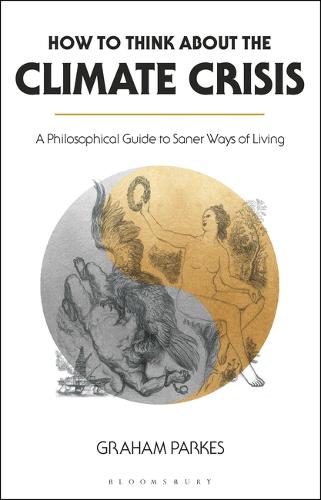
By Jeremy Williams

Reading How to Think About the Climate Crisis, I got the distinct impression that it was a difficult book to write. The author spent ten years on it, and at one point mentions “the torment of writing this book.” Given that there is a website with an appendix for every chapter, some of which run longer than the chapters themselves, perhaps part of the problem is what to leave out. Where do you stop? And when everything is constantly evolving, where do you draw the line and commit to print?
Parkes’ struggle is our gain though, as this is an original and thoughtful book that genuinely has something new to say about the climate crisis, consumerism, and our relationship to the world more generally.
The book begins with some ways to be wrong about climate change, showing how certain ideologies or theologies work against solutions. Libertarianism emerges as a central theme, with its story of heroic individuals with no sense of responsibility to others. Drawing on a broad range of philosophical texts, Parkes – who is himself a philosopher based in Austria – shows how radical individualism is a relatively new idea. Older traditions emphasized the role of family, a sense of duty to society, or the virtues of being a good citizen. Much of the delay in addressing climate change, the book suggests, is down to the erosion of these more collective ways of thinking. Instead we have appeals to personal rights, or futile talks based on competing interests rather than cooperation. Talking about cooperation and collective thinking is so often shouted down as socialism, so it’s useful to see it described in ancient texts, long before the ‘isms’ of recent history made it divisive.
Perhaps more importantly, the book draws equally from Western and Eastern texts, particularly Chinese traditions. This is both interesting in its own right, and also strategic in the context of climate change. “We can’t resolve the climate crisis without Chinese cooperation – and that requires a more open attitude to, and better acquaintance with, their ideas about politics.” And so much of the book addresses Chinese traditions of power and responsibility, the historical roots of China’s suspicions of religion, the valuing of competence, and how people of virtue were supposed to extend the love that they felt towards their family outwards to the whole of society.
There are all kinds of fascinating insights here, such as the central place of music in the education of Chinese leaders. Music was considered more important than politics, history or law, things that might be prioritised elsewhere. Instead, music taught leaders to listen to those around them and find their place, to “attune their energies to those of other people”. You can learn the other stuff later, but if you can’t ‘play well with others’, none of that formal learning will be useful anyway.
To take another example, and uniquely in any book on the climate I’ve ever read, Parkes investigates the crisis through the lens of feng shui. Widely misunderstood in the West, he describes feng shui as “practical environmental science” and nothing to do with furniture arranging. There are things that the world could learn from Chinese and Japanese garden design that would help with climate change, he argues, because it is about being led by the landscape rather than imposing your will upon it. It doesn’t place human desires at the top of a hierarchy, but responds to nature and seeks harmony rather than domination.
There’s a lot more I could enthuse about, including a chapter on consumerism and simple living, and a fascinating chapter on the Western insistence on dividing the world into living and inanimate objects, and what we might discover if we were slower to ridicule ‘animist’ perspectives. Like everything else here, the point is not to convince readers of the superiority of one perspective over another, but rather to learn from them. What ways of thinking choke off climate solutions? What alternatives ways of thinking can lead us out of philosophical dead ends?
I’m a firm believer that good ideas can come from anywhere, and nobody has a monopoly on the truth. And so I really liked How to Think About the Climate Crisis. It’s book that turns over a lot of rocks in search of useful ideas, and I am grateful that Graham Parkes pushed through the torment and finished the book.
First published in The Earthbound Report.
Categories: book review, climate change, culture, literature
A good review of How to Think About the Climate Crisis. Thank you 😊
LikeLike